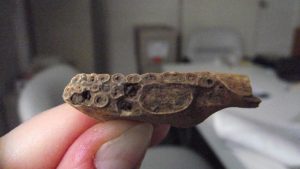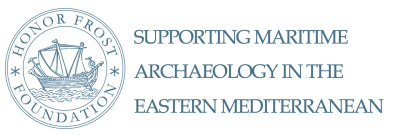Berytus and the sea: Understanding marine resource exploitation and marine ecosystems in Roman Beirut using bioarchaeology- 2023-Ongoing
Dr. Canan Çakırlar, Senior Lecturer, Groningen Institute of Archaeology, University of Groningen
 Romanization led to fundamental changes in the economy and ecology of the Mediterranean. Most research on the Roman Mediterranean examines agricultural production and animal husbandry, and questions their impact on terrestrial ecosystems. This research investigates the characteristics of marine resource exploitation in the Roman Mediterranean city, focusing on Berytus. Fish bones and mollusc shells from the 1994-1999 Anglo-Lebanese excavations in downtown Beirut will be analyzed to determine the species exploited and reconstruct catch size. Stable isotopic analysis will be employed to understand the trophic relations in marine ecosystems. Results will inform the scale of marine resource exploitation, and how harvesting the sea for the urban market and long distance trade affected marine ecosystems. The data will likely reveal imported species and how new culinary traditions emerged in cosmopolitan Berytus. The assemblage from the American University of Beirut (AUB)-Archaeological Collaboration for Research and Excavation/Leverhulme project is uniquely suited for this research. It is one of the few marine bio-cultural heritage archives of the Roman eastern Mediterranean. This project valorizes this invaluable assemblage with support from faculty members at the AUB Marine Cultural Heritage minor and Archaeology. Integrating bioarchaeology with marine cultural heritage studies, this project contributes to the development of maritime archaeology in the Mediterranean. A training program is an essential part of the project, it ensures knowledge-transfer and synergy between the project team and Lebanese students and researchers. This is a crucial early step in building capacity in maritime bioarchaeology in Lebanon.
Romanization led to fundamental changes in the economy and ecology of the Mediterranean. Most research on the Roman Mediterranean examines agricultural production and animal husbandry, and questions their impact on terrestrial ecosystems. This research investigates the characteristics of marine resource exploitation in the Roman Mediterranean city, focusing on Berytus. Fish bones and mollusc shells from the 1994-1999 Anglo-Lebanese excavations in downtown Beirut will be analyzed to determine the species exploited and reconstruct catch size. Stable isotopic analysis will be employed to understand the trophic relations in marine ecosystems. Results will inform the scale of marine resource exploitation, and how harvesting the sea for the urban market and long distance trade affected marine ecosystems. The data will likely reveal imported species and how new culinary traditions emerged in cosmopolitan Berytus. The assemblage from the American University of Beirut (AUB)-Archaeological Collaboration for Research and Excavation/Leverhulme project is uniquely suited for this research. It is one of the few marine bio-cultural heritage archives of the Roman eastern Mediterranean. This project valorizes this invaluable assemblage with support from faculty members at the AUB Marine Cultural Heritage minor and Archaeology. Integrating bioarchaeology with marine cultural heritage studies, this project contributes to the development of maritime archaeology in the Mediterranean. A training program is an essential part of the project, it ensures knowledge-transfer and synergy between the project team and Lebanese students and researchers. This is a crucial early step in building capacity in maritime bioarchaeology in Lebanon.
